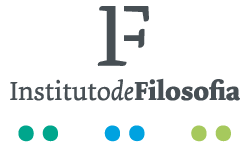Principal investigator: Sofia Miguens
The main aim of this project is to understand the difference between the stances of cognitive science and philosophy in approaching the nature of mind. We will try to do that by focusing on attempts to develop a theory of rationality, both within philosophy and cognitive science. Like in the group´s former project (RBD1, R&D Unit 502 sub-project), we take a theory of rationality to include (i) a description or characterization of the factors at play on occasions when agents move from certain beliefs to others, add or eliminate beliefs from their corpus of beliefs, or opt for a course of action from several alternatives, based on a set of beliefs and desires; (ii) a set of hypotheses about the way we decide about correctness criteria when we talk of justifiedness or rationality of beliefs and actions; (iii) a set of hypotheses about the reasons why we want to know (if indeed we do) if our beliefs are true and our reasoning and actions rational. While in project RBD 1 we focused on agents’ motivation for action, conceived both from the point of view of philosophy and cognitive science, our interest now lies in the relation between philosophy and cognitive science itself. We believe that a theory of rationality should have research in cognitive science (namely studies of reasoning, decision, emotion, theory of mind) as its starting point, yet should not be identified with that research. To defend this thesis we intend to select specific problems (concerning reasoning, decision, emotion, theory of mind) and compare specific approaches to those problems in cognitive science and in philosophy. In trying to make the relations and the differences between scientific studies of cognition and philosophy explicit, we will look for the work of philosophers such as D. Davidson, D. Dennett and J. Fodor as guidance.
Project ID: POCI/FIL/55555/2004
